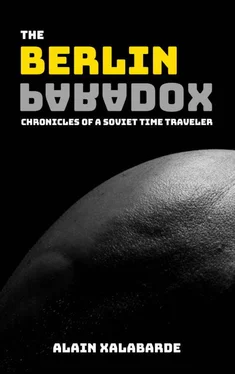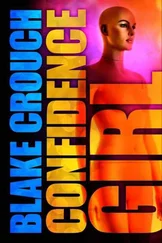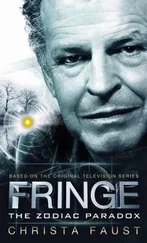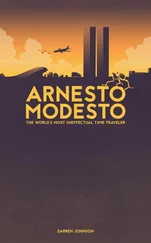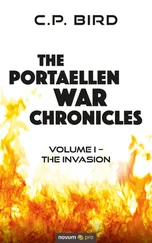I walk all the way to the Tiergarten. Berlin has a strange new personality. Even the light seems different. On the way I find the four-story-high bunker in Pallasstrasse. I remember it well, but it catches my eye because they’ve built an apartment block right around it. As if they couldn’t simply destroy the largest civil bunker in Berlin and the newer buildings were determined to expand and engulf it like an overgrown vine.
Nevertheless, the city still maintains its spirit. It’s different now from what I remember, but different in the same way that a child grows into an adult. The city shows many scars, it has built a stronger personality. It is less naive. It is more confident. I’d go as far as saying that it actually intimidates me. In a good way, of course. I feel overwhelmed by its new personality. I no longer feel like I have any knowledge of who it truly is.
A couple of hours later I return to Burak’s apartment. The kids are gone now, and the apartment smells like marijuana. He offers me a puff, but I politely refuse. I sit beside him and we both watch television in silence.
Finally, I break the silence and ask him when my next trip will be. He takes a moment before replying that the program has been cancelled. I no longer need to travel. I tell him that now, in 1990, I may, indeed, no longer need to travel, but that in the past I still have the obligation to do so. He stares at me with a confused expression. I realize that my perception of time has been altered and is no longer the same as other’s. For Burak time is linear. Normal. Not even I understand my own perception of time.
A minute later he continues by saying that if I really want to continue travelling, he is in possession of a code and the location where it can be used. I’m unsure that I want to continue, but the more I think about it, the harder it is to see myself in this new world. I am oblivious to the past 40 years, I have no job waiting for me, I’m not sure I’ll ever be able to approach my sister, the few friends I had have probably forgotten me by now… heck, I don’t even know where I’d find the blond doctor. The only person I know is Burak, and we seem to be as compatible as oil and water.
Besides, there are too many open questions. I don’t think I’d be able to live with the burden of the doubt.
Before going to sleep, Burak gives me the address of this new location. I also ask him for a map of Berlin. After he is gone to bed, I try to make sense of all the locations I’ve travelled from so far. I try to find a pattern, but it makes no sense.
Half an hour later I wake up with my face drooling over the map. I put it away and go straight to sleep.
Burak is not as protective as the doctor. I told him in the morning that I wish to travel and he agreed that we could do so as soon as possible. Maybe he’s just careless. Then again, that I already knew about him.
Before we leave the apartment, he packs a duffle bag with some tools and a scruffy notebook. We drive in his ugly Volkswagen southbound and park it near the Trabrennbahn, the trotting track in Mariendorf. I’ve never heard of this place. It’s amazing the amount of surprises this city still holds for its residents. To my surprise, this is precisely our destination. I remind Burak to bring the duffel bag with him. He shakes his head and says it’s too early.
It’s quite busy today at the Trabrennbahn. I didn’t expect this sort of place to still function this well. Burak places some bets, we get a couple of beers and find some seats. I feel a little nervous for taking it so easy. I feel like I’m slacking at work. I convince myself that I should take a break and simply enjoy the race.
It is actually more enjoyable than what I had expected. There’s something charming about it, almost primal. I’ve never been in close contact with animals, and the simple thought of riding a chariot sends exhilarating sensations through my spine.
The race is over sooner than I had hoped. Burak lost all his bets. His bad luck makes me feel uneasy. We exit the premises and walk directly to a nearby restaurant. I remind him that I have no money. He shakes his head and says that I am his guest. During our meal I ponder about my relationship with him. I figured that the reason it feels odd is because it’s unclear who he is to me. With other people I seem to clearly know who they are and what their purpose in my life is. With Burak it’s quite different. I convince myself that it isn’t something to be repulsed by and to simply take it in as it is.
After the very early dinner we drink a little. Burak much more than I. The mood is infused with our traditional awkward silence, until, all of the sudden, Burak begins to speak, in a tone I had never heard before.
He asks me if I know what life is all about. I think about the question for a moment, but before I am able to answer, he interrupts. Good. I had nothing smart to say. He says that his grandfather once told him that life is like a candle. It begins as an impeccable piece of wax until someone spoils it by lighting it on fire. Although the candle gets smaller as it melts, the flame is always as hot and bright as the first time it is lit. If you’re a good candle, people shall gather around you and you shall serve your purpose until the end of your existence. People will read books next to you, they will cook, they will tell stories. However, if the candle sits alone in a room, lighting up the empty walls, its life and purpose is rendered useless. Once the candle fades out, it is easy to clean up. A wet napkin is enough to remove the leftover wax and a new fresh candle can be placed in that same spot.
Burak leans over to me for his last words. He tells me that his grandfather told him this back in Turkey, in his living room, by the light emanating from the candle on top of the side table beside the sofa. He says that he would tell him many stories beside that table. He says the last time he was in Turkey it was five years ago. They were selling off his grandfather’s house. He says he saw the side table still beside the sofa. He blew the dust off of it and saw the stains of all the candles that had been lit on top of that table throughout the years.
With that, Burak sits back and stretches his arms in the air. I don’t quite understand what made him tell me this now, but I feel like we are somehow closer for it. He takes one more sip from his booze and explains what his reply to his grandfather. He was seven at the time. He told him that if he were a candle, he’d accidentally fall off the table and burn the whole house down — that would definitely leave a mark. Burak laughs with a raspy voice. My god. It’s the first time I’ve heard him laugh. It is not even close to what I had imagined.
* * *
Night has fallen. Burak and I walk back to the car. He grabs the duffel bag and we walk behind a side street. He brings out a crowbar and asks me to stay on the lookout. I look up and down the street. In the distance I see a man. I stare at him, but he soon walks off to the side.
Burak opens a manhole beneath us. We enter the sewers carefully. He takes out a small torchlight and I follow him from behind. He seems lost. I ask him if he is. He nods. He says he has the address, but it doesn’t mean he has been there before.
Burak gently taps the walls with his crowbar as we continue deeper though the tunnels. The stench is getting worse with every step. Finally, he taps something metallic. He scrapes the filthy moss off the wall and a metal door is revealed. On the front of it is a dial, as if it were a bank safe. He takes out the scruffy notebook and turns the dial back and forth. The door clicks. He sticks the crowback through the cracks of the metal door and finally, it budges. A humid whiff of air emerges from inside.
Читать дальше
